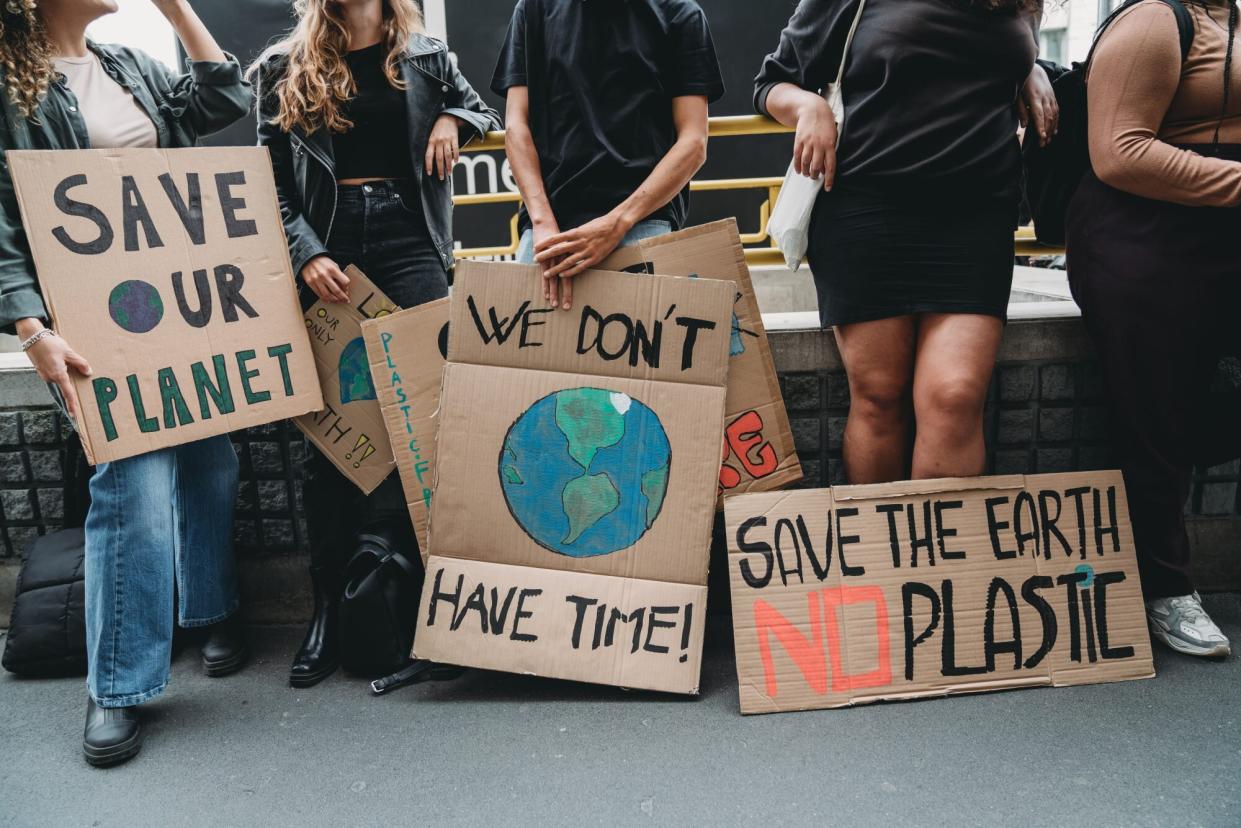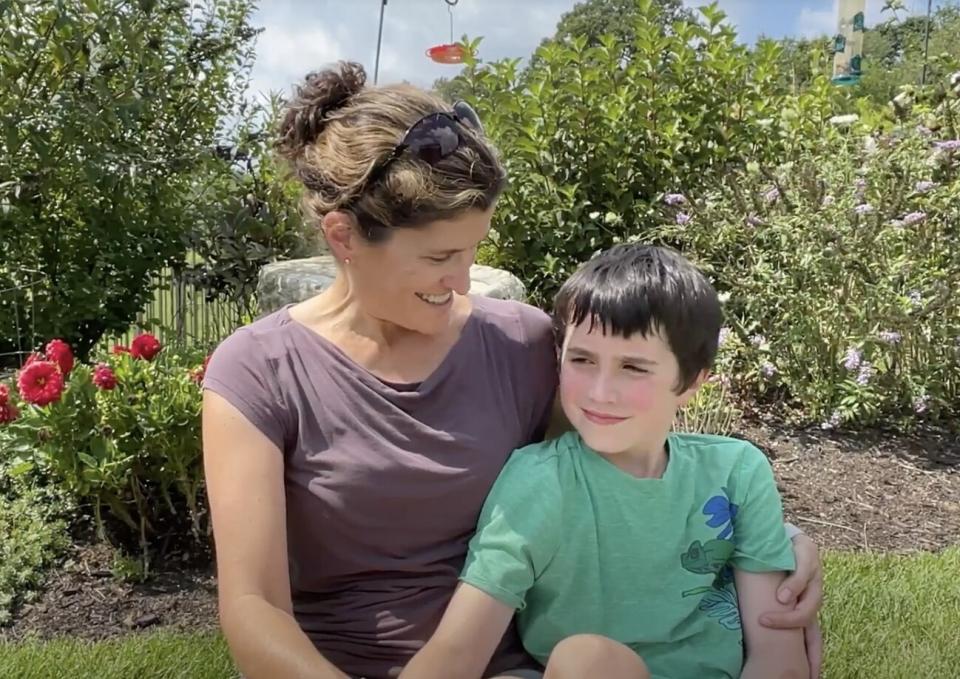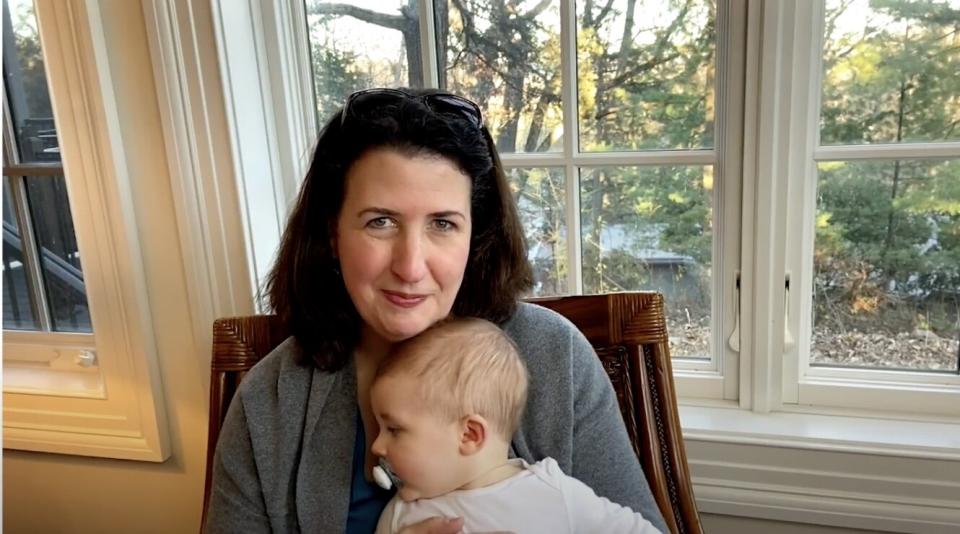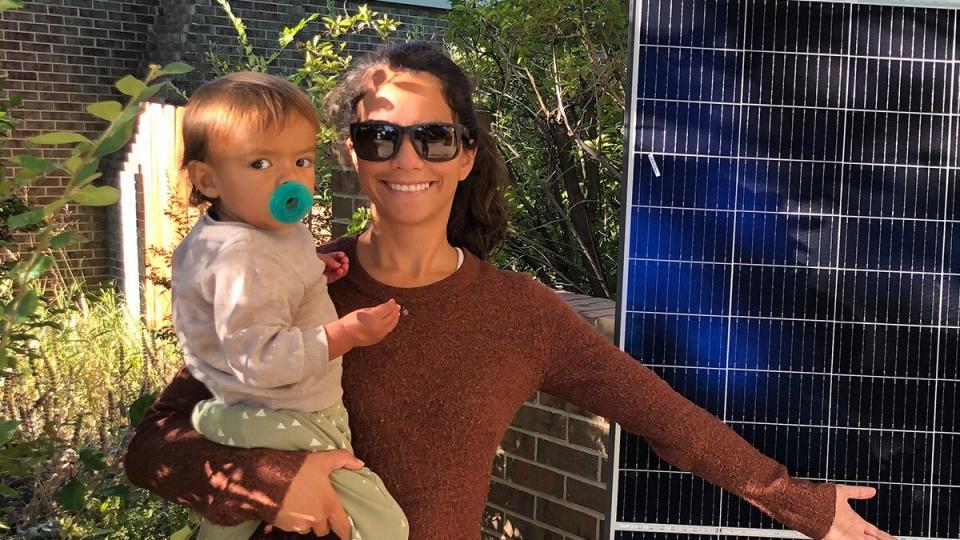Meet the Science Moms Working To Save The Planet For Future Generations

- Oops!Something went wrong.Please try again later.
Getty | Flippo Bacci
After Rosimar Rios-Berrios watched her family endure months without water and electricity when Hurricane Maria devastated Puerto Rico, where she grew up, in 2017, the atmospheric scientist became determined to further understand how climate change impacts extreme weather events. Then she became a mom, and her Ph.D research took on a new urgency, one that compelled her to speak out about the climate crisis.
"Climate change is real. It is happening now. We have no time to waste," says Dr. Rios-Berrios, who now works at the National Center for Atmospheric Research in Boulder, Colorado. "As a scientist, I feel the responsibility to share that information with the public and encourage action. But as a mom, I am worried about my child, my child's future, and the world that we are leaving behind for him and for other children."
Moms may just be one of our most potent weapons against the climate crisis. Dr. Rios-Berrios joined forces with several climate scientists and parents in Science Moms, a nonpartisan group launched by the Potential Energy Coalition in 2021. Science Moms works to help mothers concerned about the future of their children's planet understand the science behind climate change and how they can help.
"Moms have superpowers," says Erica Smithwick, Ph.D., a Science Moms member and Pennsylvania State University professor of geography and an associate director of the Institutes of Energy and Environment. "Moms don't shy away from the work that needs to be done because we're passionate about our children. I think tapping into that commitment will change the narrative around climate science and climate action."

Dr. Erica Smithwick "Moms have superpowers," says Erica Smithwick, Ph.D.
Scientists aren't usually whom you expect to be activists. They tend to like data and research, not politics. Still, the climate experts behind Science Moms are quick to point out that climate change isn't political. As moms who have spent decades studying the Earth and what human activity is doing to it, they knew they had to find a way to act on that information.
"I'm a scientist and I will share evidence-based solutions about what I'm doing but I'm also a mom and I'm going to share how I interpret that science in my daily life," says Dr. Smithwick.
Through their website and social media presence, Science Moms, which today is made up of 11 scientists, shares quick, easy-to-digest facts about everything from how climate change is affecting America's National Parks to information on President Joe Biden's infrastructure bill. There are resources to dive in more with suggestions of books for parents to read themselves, ones to read to their kids, and actions to take.
"One of the things I love about the Science Moms program is that the website and outreach make it easy for moms to get involved. It takes this complicated topic and breaks it into bite-size pieces," says Science Mom's Tracey Holloway, Ph.D., a professor in the Nelson Institute for Environmental Studies and the Department of Atmospheric and Oceanic Sciences at the University of Wisconsin-Madison and mom to two.
For parents who want to get involved in climate crisis action, Science Moms stresses the importance of talking about climate change with friends, colleagues, other parents, and elected officials.

Tracey Holloway Dr. Tracey Holloway is one of 21 Science Moms working to save the planet.
"Because climate has become so partisan and divisive in our society, it's hard to move forward with practical solutions," says Dr. Holloway. "And so, I think this focus on nonpartisan communication is really a path toward solving the problem versus just fighting about it."
It can be a tricky subject to broach, and the organization recognizes that by providing a whole kit on how to talk about climate change with kids of all ages that includes an easy explanation of the science behind the climate crisis. The scientists also stress the importance of organic conversations that meet people where they are and talk naturally about why they do certain things, especially with their kids and others.
"My kids don't have to have a job in climate. But I want them to be good humans on the Earth, and I want them to pay attention to some of the choices that they're making," says Dr. Smithwick. "I'm a vegetarian, and I'm going to raise my whole family vegetarian, and we are going to buy the eco-friendly car. We're making life decisions around it and try to infuse it into every day."
At the same time, the Science Moms team knows that tackling climate change requires system-level movement, which is why communication is so important.

Dr. Rosimar Rios-Berrios Dr. Rosimar Rios-Berrios hopes Science Moms can teach parents and kids how to help save the planet.
"We should be talking about it with our kids," says Dr. Rios-Berrios. "Explaining when we do things like turning off the lights, why we do that, and encouraging them to spend time outdoors—all those things are excellent starting points. The reality is that climate change is not a 'me problem.' It's an 'us problem.' That's why I'm trying to emphasize the need to talk about it."
While the problems we're facing are immense, the Science Moms are hopeful.
"It's something people lose sight of, but we have been able to accomplish things like that in the past," says Dr. Holloway, citing the hole in the ozone layer as one of those challenges. After scientists discovered the ozone layer hole, all 198 member countries of the United Nations adopted The Montreal Protocol on Substances that Deplete the Ozone Layer, which has since phased out the production of 99 percent of the chemicals that harm the ozone layer. "We have faced similar challenges, and we've been able to overcome them."
What Your Family Can Do To Curb Climate Change
Want to know what your family can do to help counter climate change? Here are four ways parents and kids can take action.
Kindle an appreciation for nature. Use books, videos, art, and get outdoors with your kids—even if it's just a short walk around the block looking for different trees or birds—to foster a love of nature in your kids.
Talk to your kids about climate change. You can use the Science Moms' kit to get you started. Remember it's not a one-time conversation but rather an ongoing one that can happen organically as you do everyday things, such as why you turn off the lights or eat less meat, and bigger things like why you bought the eco-friendly car.
Share your actions and knowledge. To protect the planet for our kids, Science Moms says we need systemic change and that means sharing our knowledge of climate change and the actions we're taking with our communities.
Send a letter. Along with sharing what we know, Science Moms encourages parents to write to their elected officials. You'll find a sample letter and the information you need to send a message to your government representatives on their website.

